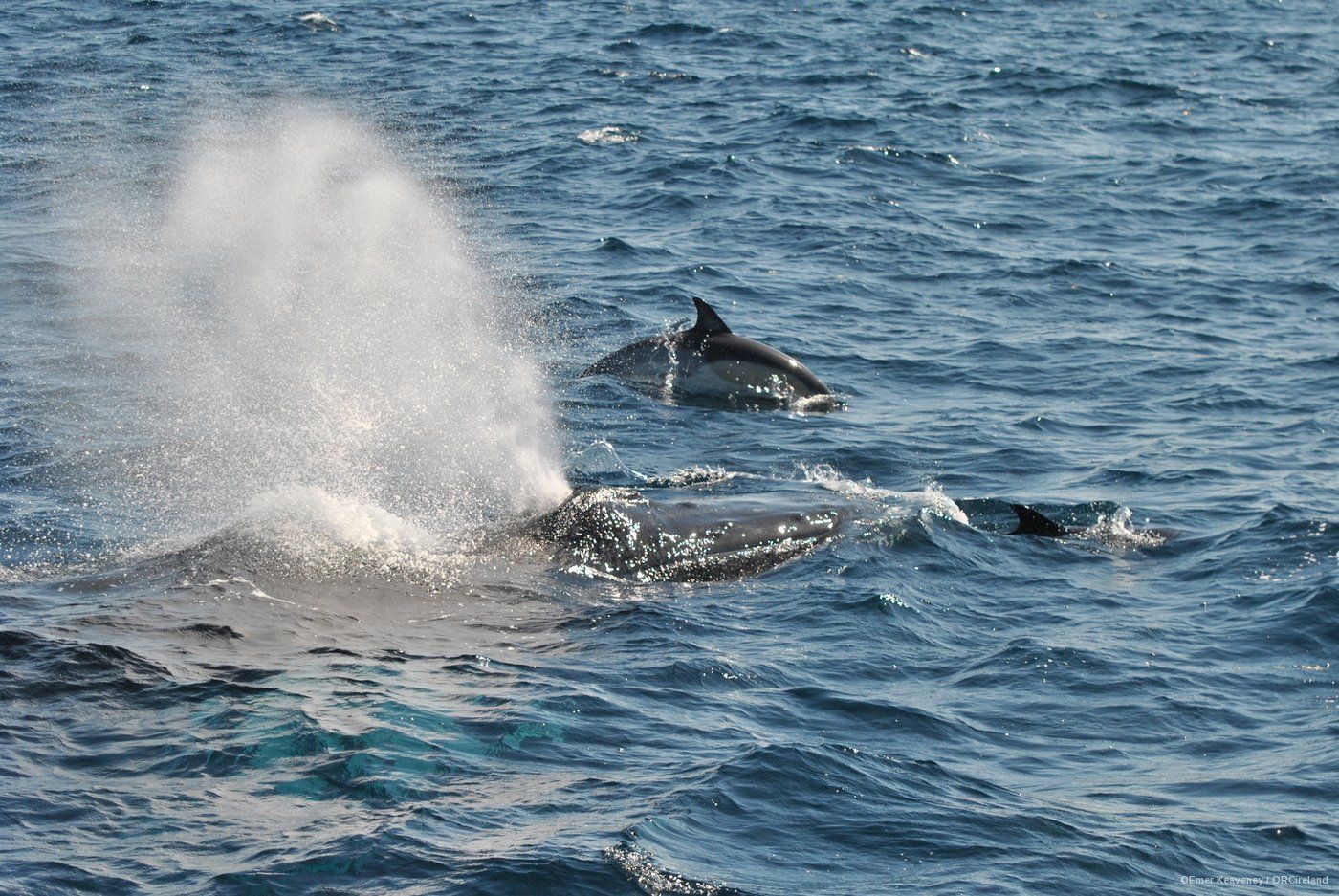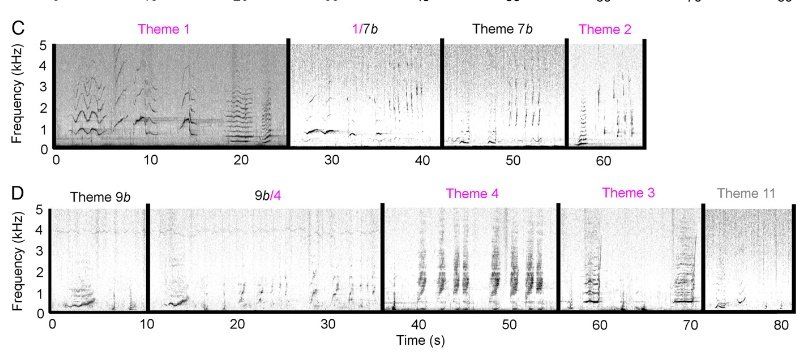Humpback whales change their songs every few years!
Male humpback whales change their song every few years, in what scientists have called a "cultural revolution", according to new research.
Culture has been observed in a variety of animal taxa, from insects to whales. Humpback whales ( Megaptera novaeangliae ) are one of the more well known cetacean species to possess cultural learning and social transmission of behaviour in non-human animals.
A long-term study conducted by researchers at the University of St. Andrews and the University of Queensland Australia has found that the signature song of individual groups of humpback whales
evolve over time, however, every couple of years, an entire population's song is completely replaced, with simpler songs preceding the originals. Humpbacks are famous for their vocalisations with unique "dialects" having been described for genetically distinct populations.
These song revolutions examined in humpbacks in eastern Australia involve the learning of a large amount of complex vocalisations introduced by the western Australia humpback whale population. The 13 year long study was published on the 21st of November, 2018 in the journal Proceedings of the Royal Society of Biological Sciences.
Groups of male humpback whales are also thought to have their own "anthem", with each member of the population singing the same sequence of the same sounds. The study analysed vocalisations of 95 male humpback "singers" from the east coast of Australia and found that gradual changes in a group were due to additional details being added by individuals that were then learned by the rest of the group. In comparison, songs introduced by revolutions were simpler, likely due to whales finding it more difficult to learn increasingly complex sounds.
According to Dr. Jenny Allen, of the University of Queensland "The consistent reduction in complexity during song revolutions suggests a potential limit to social learning capacity of novel material in humpback whales".
Another recent publication found in the journal Proceedings of the National Academy of Sciences revealed humpbacks do in-fact learn in segmented "themes" at specific points in a song when both sounds contained "similar sounds arranged in a similar pattern".
Understanding humpback whale song and social learning can provide comparative perspectives on the evolution of language and culture in humans and other animals of high-order intelligence. Other recent work has compared how zebra fish ( Taeniopygia guttata) create phonological categories that make song easier to learn. Knowledge of how humpback whales learn their extended complex vocal repertoires can thus, provide insight into other mechanisms of social learning in animals that display culture.
Cetaceans have some of the most sophisticated and complex cultural behaviors out-side of humans, including voal learning and shared traditions. For example, bottlenose dolphins, both ( Tursiops truncatus) and ( T.aduncus), show cultural transmission of tool-use, and both sperm whales ( Physeter macrocephalus) and killer whales ( Orcinus orca ) show cultural transmission of vocalisations that maintain over decades.
If you enjoy our content please consider becoming a member of ORCireland to support our mission or make a donation on our website www.orcireland.ie.
SHARE THIS ARTICLE















